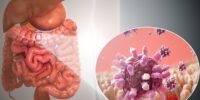To Relieve Menstrual Cramps Naturally

Discover natural ways to relieve menstrual cramps and improve your overall well-being.
In this article, we will explore the role of diet, herbal remedies, stress management techniques, exercise, stretching, heat therapy, and lifestyle changes in alleviating menstrual cramps.
By combining these methods, you can find effective and sustainable relief from the discomfort associated with your menstrual cycle.
Empower yourself with knowledge and take control of your menstrual health naturally.
Key Takeaways
- Diet and nutrition play a crucial role in relieving menstrual cramps, with an emphasis on consuming anti-inflammatory foods and hormone-balancing nutrients.
- Herbal remedies such as chamomile tea, ginger, peppermint tea, and lavender oil can help relax muscles, reduce inflammation, and relieve pain associated with menstrual cramps.
- Stress management techniques, including regular exercise, relaxation techniques, and acupressure, can provide relief from menstrual cramps.
- Additional options for natural relief include heat therapy, alternative pain relief options like acupuncture and aromatherapy, and making lifestyle changes such as maintaining a healthy diet, managing stress, and getting enough rest.
Understanding Menstrual Cramps
In order to gain a comprehensive understanding of menstrual cramps, it is essential to examine the frequency and intensity of these symptoms experienced by women during their menstrual cycles.
Menstrual cramps, also known as dysmenorrhea, are common and can vary in severity from mild to debilitating. The causes of menstrual cramps are not fully understood, but are believed to be related to the release of prostaglandins, which are hormone-like substances that cause the uterus to contract. These contractions can result in pain and discomfort.
While over-the-counter pain relievers can be effective in managing menstrual cramps, many women seek natural remedies to alleviate the symptoms. Some natural remedies include applying heat to the lower abdomen, practicing relaxation techniques such as deep breathing and meditation, and consuming herbal teas or supplements known for their anti-inflammatory properties.
Understanding the causes and exploring natural remedies can help women find relief from menstrual cramps and improve their overall well-being.
The Role of Diet in Relieving Menstrual Cramps
The role of diet in relieving menstrual cramps is crucial as it directly impacts inflammation levels and hormone balance in the body. By incorporating anti-inflammatory foods into the diet, such as fruits, vegetables, and whole grains, one can reduce the severity of cramps.
Additionally, consuming hormone-balancing nutrients, staying hydrated, and drinking herbal teas can also help alleviate menstrual discomfort.
Anti-Inflammatory Foods
Research has shown that incorporating a variety of anti-inflammatory foods into one's diet can potentially alleviate menstrual cramps and their associated discomfort. For individuals looking to relieve menstrual cramps naturally, incorporating anti-inflammatory recipes can be a beneficial strategy.
Anti-inflammatory foods such as fatty fish, leafy greens, berries, and nuts have been found to reduce inflammation and may help to alleviate menstrual cramps.
Additionally, essential oils like lavender and clary sage have been used to manage menstrual pain. These oils can be diluted and applied topically or used in aromatherapy. However, it is important to consult with a healthcare professional before using essential oils to ensure safety and effectiveness.
Hormone-Balancing Nutrients
By incorporating hormone-balancing nutrients into one's diet, individuals may potentially find relief from menstrual cramps and support overall hormonal health. Hormonal imbalances can often lead to uncomfortable symptoms during the menstrual cycle, such as cramps, mood swings, and fatigue. However, there are natural remedies that can help regulate hormones and alleviate these symptoms.
Here are four hormone-balancing nutrients to consider:
- Omega-3 Fatty Acids: Found in fatty fish, flaxseeds, and walnuts, these healthy fats can reduce inflammation and promote hormonal balance.
- Vitamin B6: This nutrient plays a crucial role in hormone regulation. Incorporate foods like bananas, spinach, and chickpeas into your diet to boost your B6 intake.
- Magnesium: Known for its muscle-relaxing properties, magnesium can help ease menstrual cramps. Sources include dark chocolate, almonds, and leafy greens.
- Zinc: Essential for hormone production and function, zinc-rich foods like oysters, pumpkin seeds, and beef can help balance hormones.
With the right nutrients, individuals can naturally address hormonal imbalances and find relief from menstrual cramps.
To continue supporting hormonal health, hydration and herbal teas are key.
Hydration and Herbal Teas
In order to alleviate menstrual cramps naturally, individuals should prioritize hydration and incorporate herbal teas into their diet.
Hydration benefits the body by keeping it well-nourished and maintaining optimal functioning. Drinking enough water helps to reduce bloating and inflammation, which can contribute to the intensity of menstrual cramps.
Additionally, herbal infusion options such as chamomile, ginger, and peppermint teas have been traditionally used to relieve menstrual discomfort. Chamomile tea has anti-inflammatory properties that can help relax the muscles and reduce pain. Ginger tea is known for its soothing effects on the stomach and can help alleviate nausea and cramps. Peppermint tea has a calming effect on the muscles and can help relieve tension and pain.
Herbal Remedies for Menstrual Cramp Relief
One effective approach to alleviate menstrual cramps is through the use of herbal remedies, such as with the application of essential oils onto the lower abdomen. These natural solutions have been used for centuries to provide relief from the discomfort and pain associated with menstrual cramps.
Here are four herbal remedies that can help alleviate menstrual cramps:
- Chamomile tea: Known for its calming properties, chamomile tea can help relax the muscles and reduce inflammation, providing relief from menstrual cramps.
- Ginger: Ginger has anti-inflammatory properties that can help reduce the intensity of menstrual cramps. It can be consumed as a tea or added to meals for its pain-relieving effects.
- Peppermint: Peppermint tea or oil can help relax the muscles and relieve pain associated with menstrual cramps. Its cooling effect can provide soothing relief.
- Lavender: Lavender oil can be applied topically or used in aromatherapy to reduce menstrual cramps. Its relaxing properties can help ease pain and promote relaxation.
Effective Stress Management Techniques for Menstrual Cramps
Several research studies have shown that engaging in regular exercise, such as brisk walking or cycling, for at least 30 minutes a day can significantly reduce stress levels and alleviate menstrual cramps. Stress reduction is crucial for women who experience painful menstrual cramps, as stress can exacerbate these symptoms.
Incorporating relaxation techniques into one's daily routine, such as deep breathing exercises or meditation, can further enhance the benefits of exercise in managing menstrual cramps. These techniques promote relaxation and help to alleviate muscle tension and pain.
Exercise and stretching for menstrual cramp relief go hand in hand, as stretching exercises can help relax the muscles in the abdomen and lower back, reducing cramp severity.
Exercise and Stretching for Menstrual Cramp Relief
The incorporation of exercise and stretching into one's routine has been proven to provide effective relief from menstrual cramps, enhancing overall well-being. Here are four ways in which exercise and stretching can help alleviate menstrual cramps:
- Exercise and Yoga: Engaging in regular physical activity and practicing yoga poses specifically designed to target the pelvic area can help relax the muscles and reduce cramping.
- Acupressure: Applying pressure to specific points on the body, such as the lower abdomen and lower back, can help relieve menstrual pain. Acupressure techniques can be easily learned and self-administered.
- Massage: Gentle abdominal and lower back massages can help relax the muscles, improve blood circulation, and reduce menstrual cramps.
- Stretching: Incorporating stretching exercises into your routine can help relieve tension and improve flexibility, reducing the severity of menstrual cramps.
Heat Therapy for Alleviating Menstrual Cramps
Heat therapy is a popular and effective method for alleviating menstrual cramps. Applying heat to the abdominal area helps to relax the muscles, reduce pain, and increase blood flow.
In addition to heat packs and warm baths, there are various other heat therapy options available, such as heating pads and hot water bottles.
Benefits of Heat
Applying gentle warmth to the lower abdomen can significantly aid in relieving menstrual cramps, promoting relaxation, and reducing discomfort. Heat therapy is a natural and effective way to alleviate the symptoms of menstrual cramps without relying on medication. Here are four benefits of using hot compresses or warm baths to relieve menstrual cramps:
- Improved blood circulation: Heat helps to increase blood flow to the abdominal area, reducing cramping and soothing the muscles.
- Muscle relaxation: Heat therapy relaxes the muscles in the lower abdomen, easing tension and reducing the intensity of menstrual cramps.
- Pain relief: The application of heat can provide immediate pain relief by blocking pain signals and reducing inflammation.
- Stress reduction: The warmth and relaxation induced by heat therapy can help to reduce stress levels, promoting overall well-being during menstruation.
Alternative Pain Relief
In addition to heat therapy, individuals seeking alternative pain relief for menstrual cramps can explore other natural remedies such as acupuncture therapy or herbal supplements. Acupuncture therapy involves the insertion of thin needles into specific points on the body to stimulate the flow of energy and relieve pain. Herbal supplements, on the other hand, can help regulate hormonal imbalances and reduce inflammation. Another natural approach to relieving menstrual cramps is through aromatherapy techniques. Essential oils such as lavender, clary sage, and peppermint can be diluted and applied topically or diffused to promote relaxation and alleviate pain. Below is a table highlighting some popular natural remedies for menstrual cramps:
| Remedies | Description | Benefits |
|---|---|---|
| Acupuncture therapy | Involves needle insertion to stimulate energy flow | Relieves pain and reduces inflammation |
| Herbal supplements | Natural remedies to balance hormones | Regulates hormonal imbalances |
| Aromatherapy | Use of essential oils for pain relief | Promotes relaxation and reduces pain |
Exploring these alternative approaches can provide individuals with additional options for managing menstrual cramps naturally.
Lifestyle Changes for Long-Term Relief From Menstrual Cramps
One effective way to achieve long-term relief from menstrual cramps is by making certain lifestyle changes, such as maintaining a regular exercise routine and incorporating stress-management techniques into one's daily routine. These changes can help reduce the severity and frequency of menstrual cramps, providing natural and long-term solutions for those seeking relief.
Here are four lifestyle changes that can be beneficial in managing menstrual cramps:
- Regular exercise: Engaging in physical activity can help improve blood circulation and release endorphins, which act as natural painkillers.
- Healthy diet: Consuming a well-balanced diet, rich in fruits, vegetables, and whole grains, can help regulate hormone levels and reduce inflammation, potentially alleviating menstrual cramps.
- Stress management: Incorporating stress-management techniques like meditation, deep breathing exercises, and yoga can help relax the body and reduce muscle tension, providing relief from menstrual cramps.
- Sufficient rest: Getting enough sleep and making rest a priority can aid in reducing stress levels and promoting overall well-being, which may positively impact menstrual cramps.
Frequently Asked Questions
Can Hormonal Birth Control Pills Help Relieve Menstrual Cramps?
Hormonal birth control pills have been found to be effective in relieving menstrual cramps for many women. However, it is important to note that they may also have potential side effects on menstrual cramps, which should be discussed with a healthcare professional.
Is There a Specific Diet That Can Worsen Menstrual Cramps?
Certain diets can worsen menstrual cramps. Foods high in saturated fats, processed sugars, and caffeine have been known to exacerbate symptoms. Incorporating a balanced diet with anti-inflammatory properties may help alleviate discomfort during menstruation.
Are There Any Herbal Remedies That Can Interact With Medications Commonly Used for Menstrual Cramp Relief?
Herbal remedies have potential interactions with commonly used medications for menstrual cramp relief. It is important to consider the effectiveness of alternative therapies, while ensuring safety and avoiding any adverse effects on one's health.
How Long Should I Practice Stress Management Techniques Before Noticing a Reduction in Menstrual Cramp Severity?
The duration of practicing stress management techniques to notice a reduction in menstrual cramp severity varies among individuals. It is important to incorporate alternative remedies for menstrual cramps, such as reducing stress, to naturally relieve menstrual pain.
Can Certain Exercises or Stretches Worsen Menstrual Cramps?
Certain exercises or stretches may worsen menstrual cramps due to increased blood flow to the pelvic region. However, gentle exercises like walking or yoga can help alleviate cramps by promoting relaxation and reducing muscle tension.









